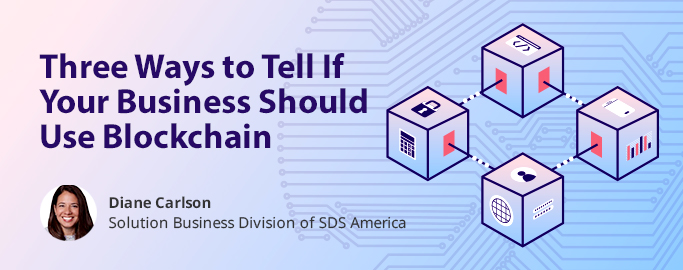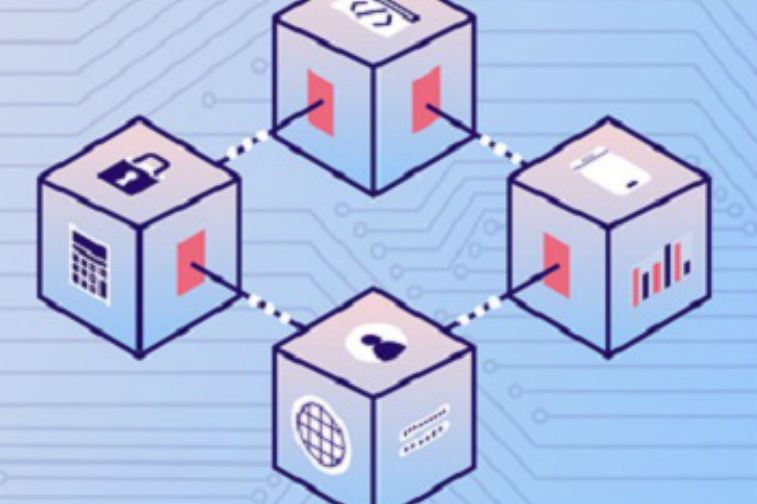
Every business seems interested in blockchain these days. Yet if you were to ask executives what blockchain is, you would likely be met with some hesitation. Furthermore, almost every person would probably give you a different answer.
Blockchain is an abstract concept because it deals with intangible assets. We define blockchain as a digital vehicle that enables permissioned entities to transfer, exchange, consent and utilize the value and information of digitized assets. Simply put, we see blockchain as a trustworthy record of transactions on a distributed database. Our Nexledger platform empowers enterprises to access a wide range of blockchain-based solutions and control distributed transactions securely and conveniently.
“Everyone wants to throw blockchain on top of all kinds of solutions,” says Vice President of Enterprise Solutions at Samsung SDSA, Richard Lobovsky. While new use cases for blockchain grow every day, executives need to assess whether these solutions can address their present-day needs. Here are some key questions that you should ask yourself to determine whether blockchain is right for you.
Are you trying to remove intermediaries or brokers?
“Simplifying a transaction is the first hurdle to justifying a blockchain implementation,” said Lobovsky.
Blockchain simplifies transactions by enabling businesses to execute without third-party interference. Imagine a warehouse, for example. Why would a distributor use an agent when he or she could communicate and negotiate directly with an end user through the blockchain?
In terms of banking, digital payment through Nexledger enables customers to directly initiate and confirm financial transactions with one another. For example, a bank or card company can use Direct Payment through Nexledger to approve payments and purchases directly from clients. In turn, customers can directly initiate and confirm payments, purchases and other financial transactions through the platform.
Do you need or rely on the trusted party?
Blockchain cannot only eliminate third parties when executing transactions, but it can also eliminate third parties when confirming transactions. Blockchain transactions are immutable, meaning they cannot be refuted. When you make a transaction on blockchain, the transaction is recorded and made accessible to all participants in the database. No party can claim, “I did not approve this.”
One major application that is being built on top of blockchain is smart contract. Smart contracts are a set of promises specified in digital form. These promises are used to gain consent among all parties in a blockchain.
Let’s return to the warehouse example. Traditionally in logistics, people sign and exchange paper contracts. What prevents someone from claiming, “This is forgery”? With smart contracts, you sign with an encryption key to guarantee security and verification.
What if a malicious actor gains control of a blockchain user‘s identity? Nexledger applies blockchain technology to personal authentication and secure payments. Blockchain ID, Nexledger’s digital identity application, enables users to easily verify their identities with whichever mobile financial service they need. Upon registering and verifying customer information, users select the best authentication method by combining individual PINs and biometric authentication. This unique and personalized combination of verification factors makes the blockchain user’s identity virtually impenetrable.
Do you require high performance, millisecond transactions?
Currently, blockchain implementations exist that can process 150,000 to 200,000 bytes per transaction. However, this is not the norm. A typical blockchain is limited to about 15,000 bytes per transaction, according to Lobovsky. Therefore, blockchain might not yet be a viable for solution like industries that demand immediacy like trading.
“As soon as we talk about high-speed transactions like trading, for example, (blockchain) doesn’t fit,” said Lobovsky. In an industry where two-tenths of a second is enough to make someone rich, blockchain could actually slow these processes down and lead to major losses.
While blockchain might not fit situations that demand high speed, Nexledger is still a great fit for executing real-time transactions on a large scale. With public blockchain, the more volume you have, the slower it gets, in terms of how many transactions per second it can process. Nexledger helps businesses maximize on volume because it can store a larger amount of information with each transaction (roughly 2 megabytes per transaction). For example, in logistics, increased performance and storage in addition to the ability to automate transactions under specified agreements between parties through smart contracts can automate transactions thereby significantly improving the speed of work.
 By Diane Carlson_SDSA
By Diane Carlson_SDSA
